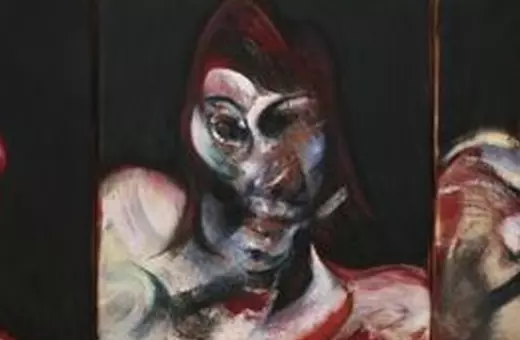Art that is grounded in close observation of the everyday – think grey-washed British films, the flawed characters formed in gritty cities and ‘ kitchen sink’ paintings – has much to recommend it. Lukács, the Hungarian philosopher and critic, contrasted it favorably to the unchanging, noble heroes of modernist novels. He noted especially its truthful depiction of the relationship between the human subject and the outside world. But this view of realism stemmed from a particular moralistic purpose– an unacceptable constraint in both art and life, writes Thomas Leddy.
Everyday aesthetics is a fairly new branch of philosophy focusing on the aesthetics of everyday events, settings and activities. For Lukács, the Hungarian philosopher, historian and critic, the issue of everyday aesthetics comes up in contemporary life in three ways. Firstly, in the relationship between the human subject and the outside world, secondly, in relation to Freud's notion of the psychopathology - mental disorder - of everyday life and, thirdly, in its approach to sensory detail. In all of these areas, Lukács criticizes modernism (the ideology of modernist literature on which much of our film, TV and literature is still grounded) from a Marxist, realist perspective - stressing that the subjective and the objective are in a constant interplay to form human nature; that mental disorder is no escape from capitalist contemporary life; and that sensory detail is essential to ground art.
Lukács stresses that the subjective and the objective are in a constant interplay to form human nature and our experience of the world.
Lukács’ first critique of modernism is that it does not portray human development as an interplay (a dialectic) between the subjective self and the objective world; it stresses a static notion of human nature over a dynamic one. The central character battles through a changing and adverse world, but overcomes his or her problems through the strength of a fundamental human nature. In this way, modernism implicitly argues that humans have such an unchanging human nature. This nature is described as being "thrown-into-being" by Heidegger. It is the experience of being ontologically alone: our essential and existential solitariness.
At root, the modernist style of art and presenting the world is derived from the ontological dogma of the solitariness of man." To understand this better, think of Aristotle's idea of man as a political animal: ‘...each new phase in the evolution of society’ produces a new typology of humans. The value of aesthetic realism is that it sees contradictions both within society and within the individual in terms of dialectic. In the realist literature of Shakespeare, Balzac, and Stendhal "the average man is simply a dimmer reflection of the contradictions always existing in man and society." And this is impossible if you believe man is thrown into Being, in the Heideggerian sense.
This view of human nature is combined with a view of the nature of possibility. Concrete possibility is based on the historical conditions of our being. Abstract possibility, on the other hand, is not bounded by our current, material situation. For the modernist, possibility is only abstract: it is never concrete. For the realist there is both abstract and concrete possibility: both man and human culture are historically situated. Similarly with time: The realist novel stresses a dialectic of subjective and objective time, not subjective time alone. Note that this avoids the mistake - a form of vulgar Marxism - reducing the subjective to the objective. Retaining subjectivity allows for the possibility of human choice.















Join the conversation